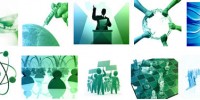March 2013
Before Stefan Crets became Executive Director of CSR Europe in 2011 he was a corporate social responsibility leader at Toyota Motor Europe. Now he is the Executive Director of the number one European business network for corporate social responsibility (CSR). Around 70 multinational corporations and 36 national partner organizations are part of CSR Europe. In total, the network reaches out to over 5,000 companies throughout Europe. CSR Europe launched the Enterprise 2020 initiative with emphasis on social innovation as a driver of corporate social responsibility.
Global Trends: How have perspectives on CSR changed in the last 10 to 15 years?
For a long time, CSR in Europe was primarily about how to manage the impact of your business: environmental impact, social impact, governmental impact. All in all it was fairly compliance driven in the sense of meeting certain standards. Usually companies saw CSR as a separate activity, not as part of their core business, but rather as a part of communications and public affairs.
It was only in 2005/2006 that perspectives started changing. Now we see an evolution in most leading companies, where CSR is becoming part of a more integrated management approach. For example the move from public affairs to corporate or strategic planning divisions means that you link managing impact to business management, including R&D, HR, production, marketing, sales and so on.
There is another, more recent evolution: if you really want to contribute to sustainability issues and to strengthen your business, it becomes more about social innovation. It’s about which products and services you can offer that contribute to sustainability issues on local, regional or even global levels. For example, the hybrid engine is a highly social innovation: it lowers the environmental impact for society while at the same time offering growth potential to the company. These kinds of innovations set future trends.
Continue





